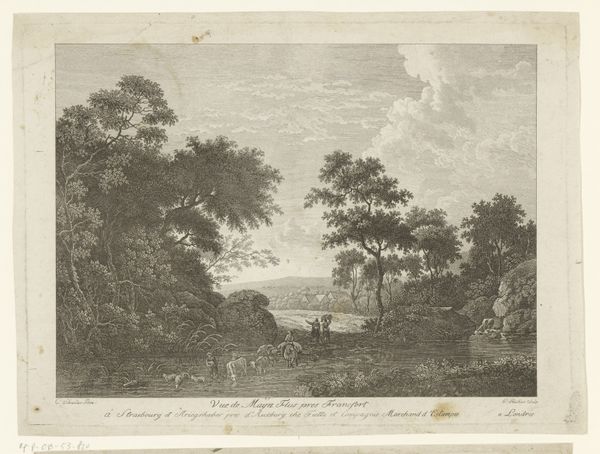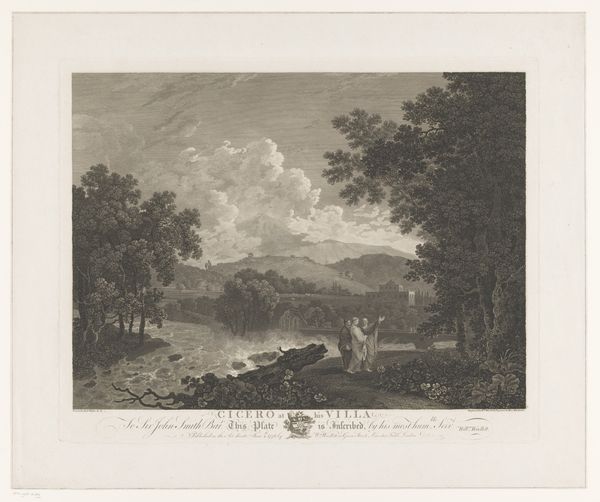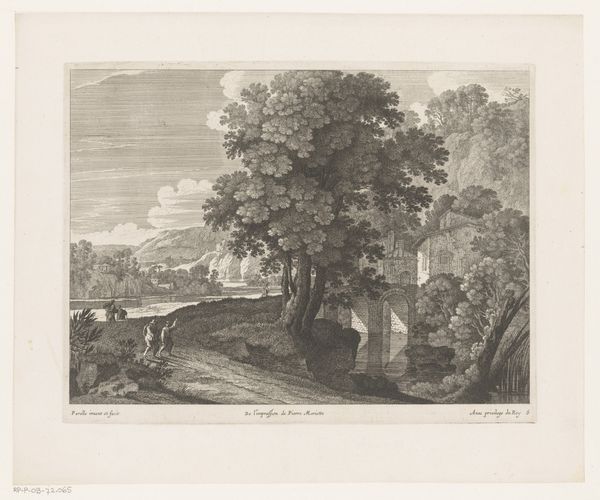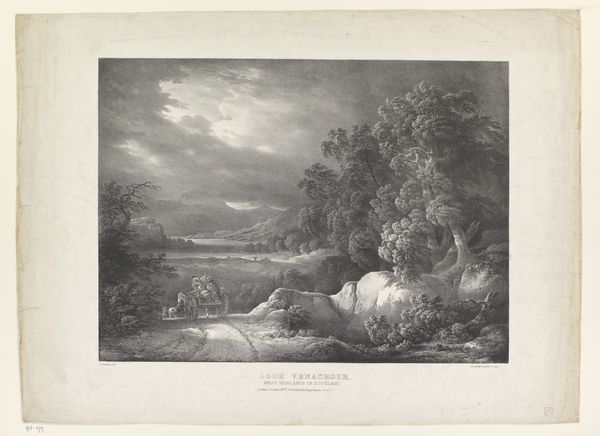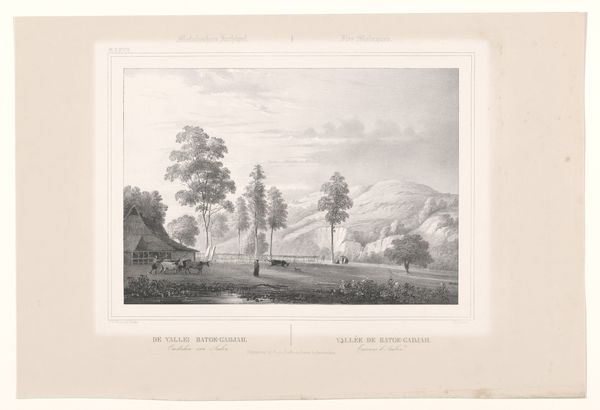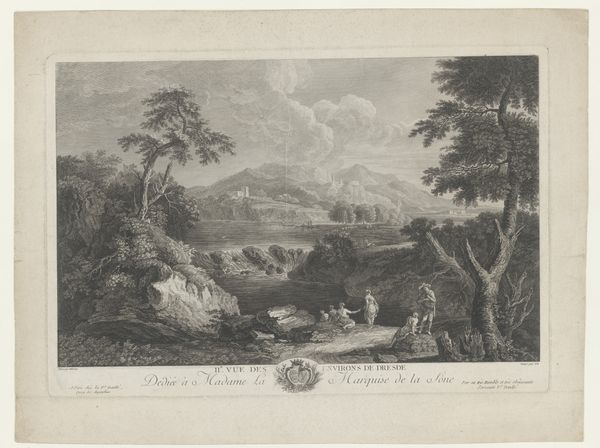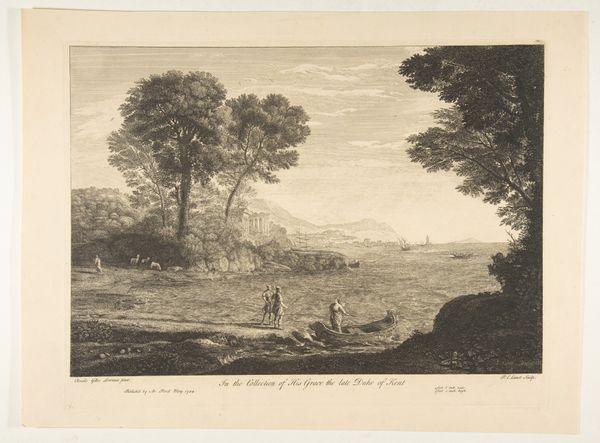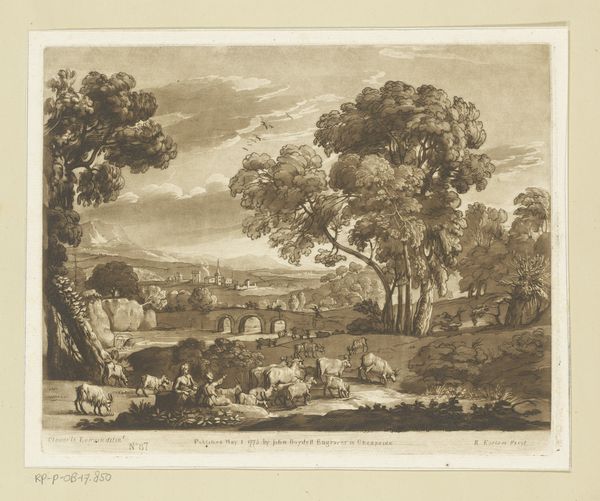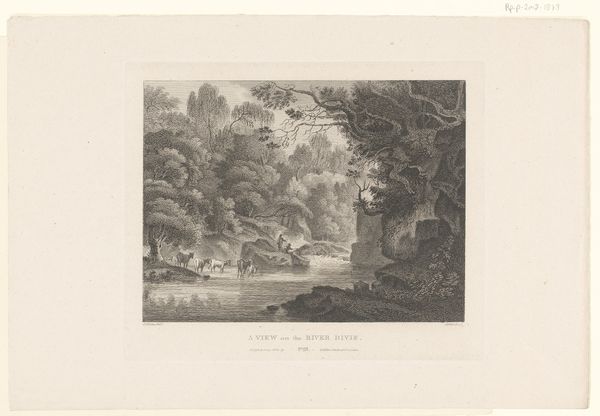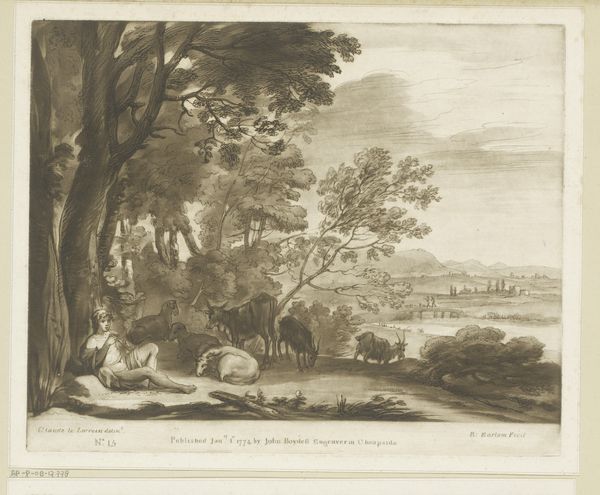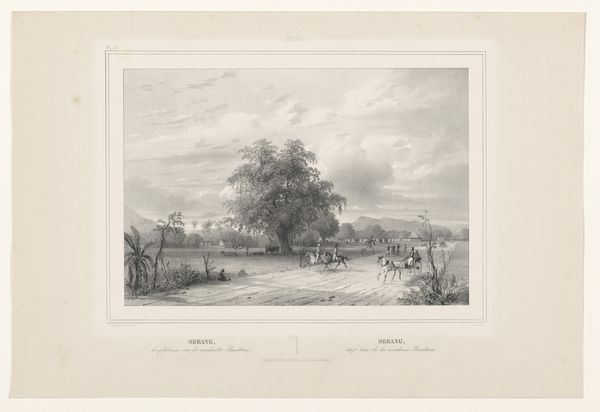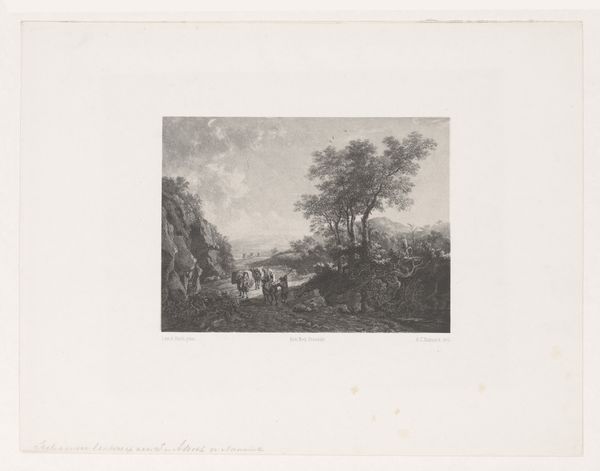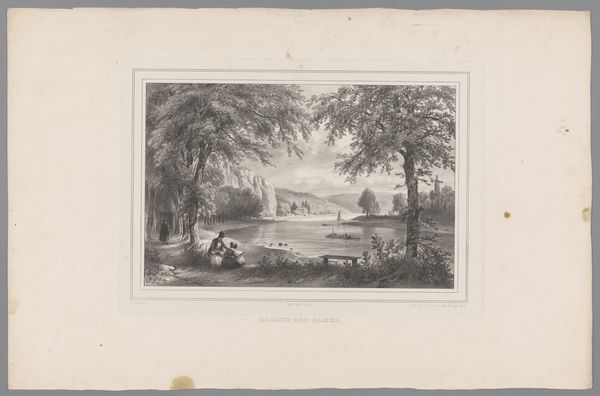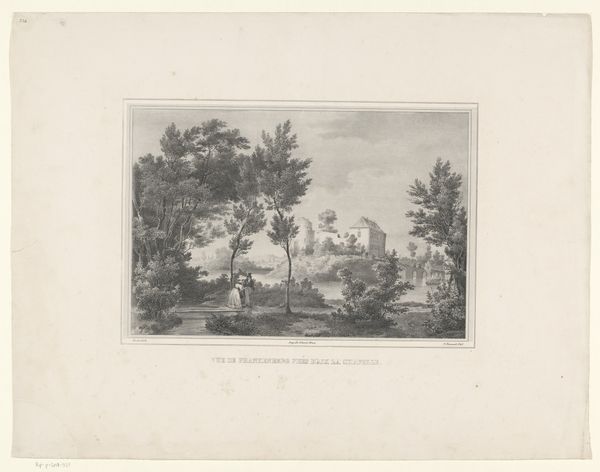
print, engraving
# print
#
landscape
#
romanticism
#
watercolour illustration
#
engraving
#
monochrome
Dimensions: height 450 mm, width 570 mm
Copyright: Rijks Museum: Open Domain
Louis Ghémar created this landscape using lithography, a printmaking process that relies on the chemical repulsion of oil and water. Lithography allowed for detailed replication, making art more accessible, but also changing its status. In Ghémar’s work, the artist is literally part of the scene. Look closely, and you'll see him working under a tent. He's capturing the landscape, but also, the landscape is capturing him. The labor of the artist becomes part of the picturesque scene itself. Think about the implications of this. The industrialization of art production transforms artistic labor. It's not just about individual expression anymore; it's about how art fits into a wider system of production and consumption. This piece invites us to consider how technological advancements in art-making intersect with the changing role of the artist in society. It asks us to consider how reproducibility affects our understanding of artistic value and originality.
Comments
No comments
Be the first to comment and join the conversation on the ultimate creative platform.
